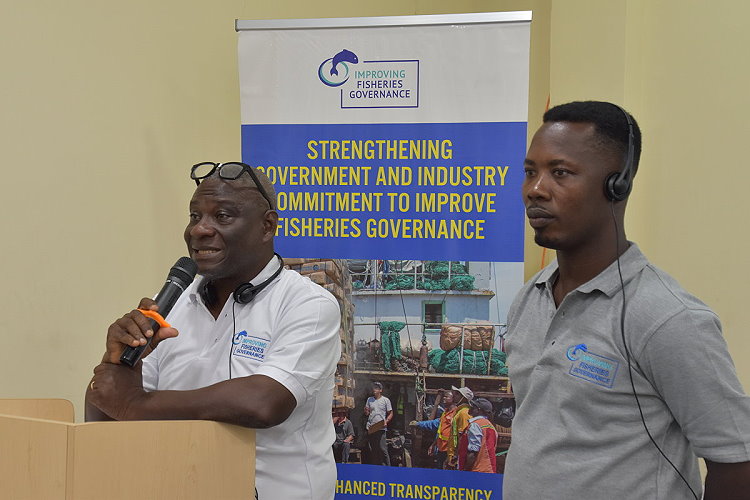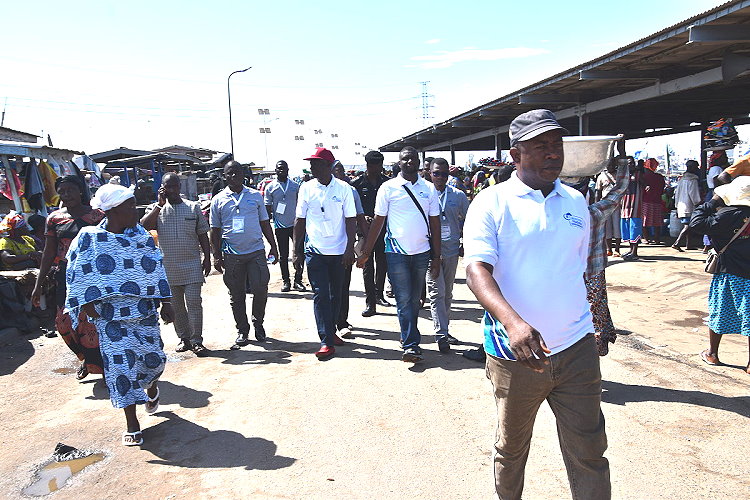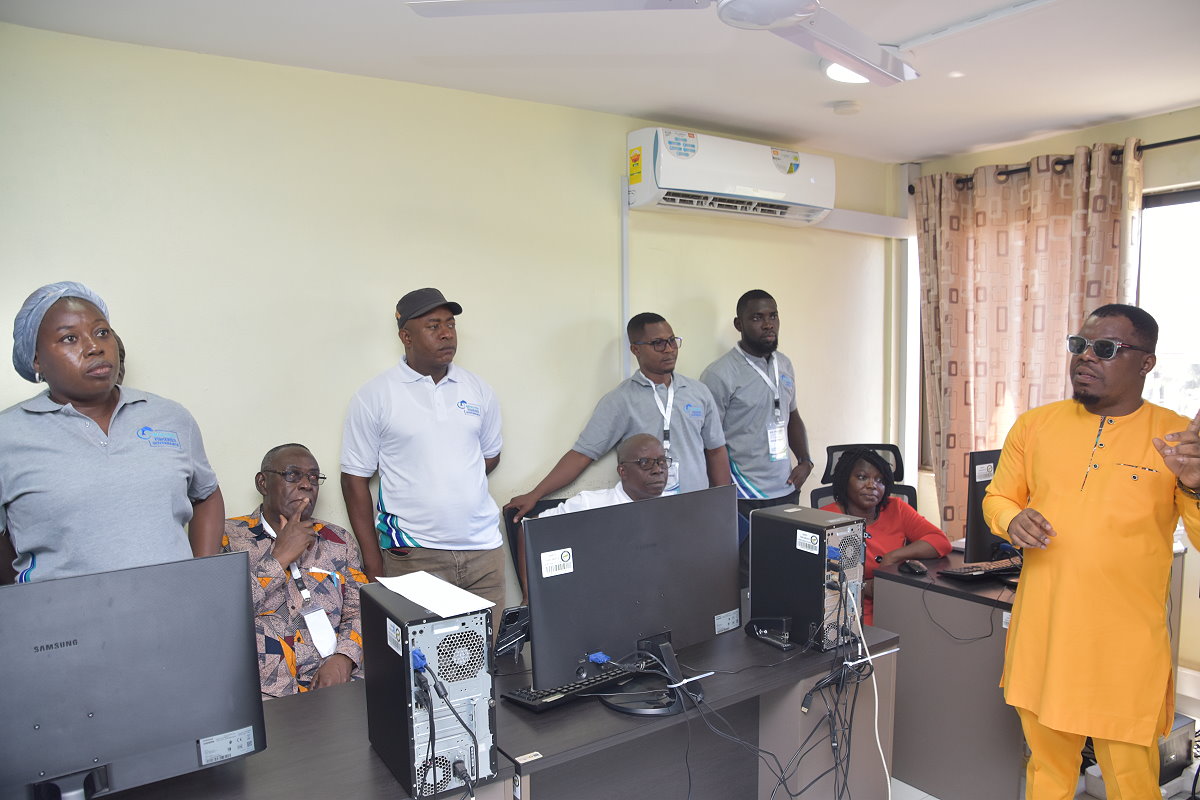Prof. Francis Nunoo, Chairman, of the Fisheries Commission Board, Ghana, opened the workshop with participants from fisheries departments and civil society organisations from member countries of the Fisheries Commission of the West Central Gulf of Guinea (FCFC). They joined the project team led by Kofi Agbogah of Hen Mpoano and came from Benin, Côte d’Ivoire, Ghana, Liberia, Nigeria, and Togo to identify approaches to extend IFG project activities to their countries. Mundus maris was among the invitees and represented by Dr. Oluwakemi Kafayat Ajelara, a Senior Lecturer at Lagos State University. The expectations were high as indicated by the fact that the OAK Foundation and Ocean 5 funded the workshop in collaboration with the Environmental Justice Foundation (EJF), the Fisheries Committee of West Central for the Gulf of Guinea, Friends of the Nation, Hen Mpoano, and TMT.
The major point of discussion was how to improve fisheries in the subregion by building on the IFG experience. Ghana is pointing to technical measures by implementing the use of electronic devices to track trawlers and encouraging other FCWC countries to follow suit. FCWC countries should also adopt policies which enhance transparency and enforce the law operationally thanks to government interventions and continuous prodding by CSOs.

Expected outcomes include increased knowledge about the impact on illegal, unreported, and unregulated (IUU) in the region which should help target its suppression more effectively. Transparency of government sector governance and accountability in fisheries management should also be enhanced this way. The implementation of a closed season, as practiced in Ghana and two other FCWC countries was among the measures expected to help protect the stocks during the major spawning season and reduce the fishing of juveniles, thus jeopardising future higher value catches. All actors including CSOs, must engage in advocacy to achieve the goals. The government can achieve this by harmonizing policies, strengthening the law and its enforcement, facilitating information exchange, and consulting with a wide range of stakeholders.
It’s also important to note that Ghana has included numerous subsidiaries in the IFG program. Other important topics discussed included the use of illegal fishing nets and the excessive fishing for juveniles. Presentations were made, among others, by the USAID representative on Ghana Fisheries Recovery Activity (GFRA) and by the Coalition for Fisheries Transparency.

Participants visiting the fish landing site
Day 2: The attendees toured the Tema fish landing site to see the wide range of finfish and shellfish species landed. They noted that the boat operators do not adhere to mesh size regulations. Also, sharks had their fins removed for export to Asian countries. It is noteworthy that regulations in Nigeria prohibit shark fishing. Another significant finding was the processing of large quantities of stale fish into condiments, a practice not common in Nigeria. As it stands, this practice amounts to fish waste, which may have negative effects e.g. on water quality and other environment conditions.
Upon return to the workshop venue participants discussed a range of issues, including the implications of a yellow card from the European Commission resulting from non-compliance. Dr. Ajelara also gave an introduction to Mundus maris discussing its past and present activities in Nigeria and the subregion, and interest in collaboration. See the slides here.

Participants were given ample explanations. Kemi Ajelara (left on photo)
Day 3: The general discussions about the lessons learned from the workshop generated consensus about the take-home messages: transparency, advocacy, and compliance. That is a tall order and will require a lot of strong collaboration between government agencies, organisations of fishers, fish processors and traders, and civil society organisations.
All photos by the FCWC.
